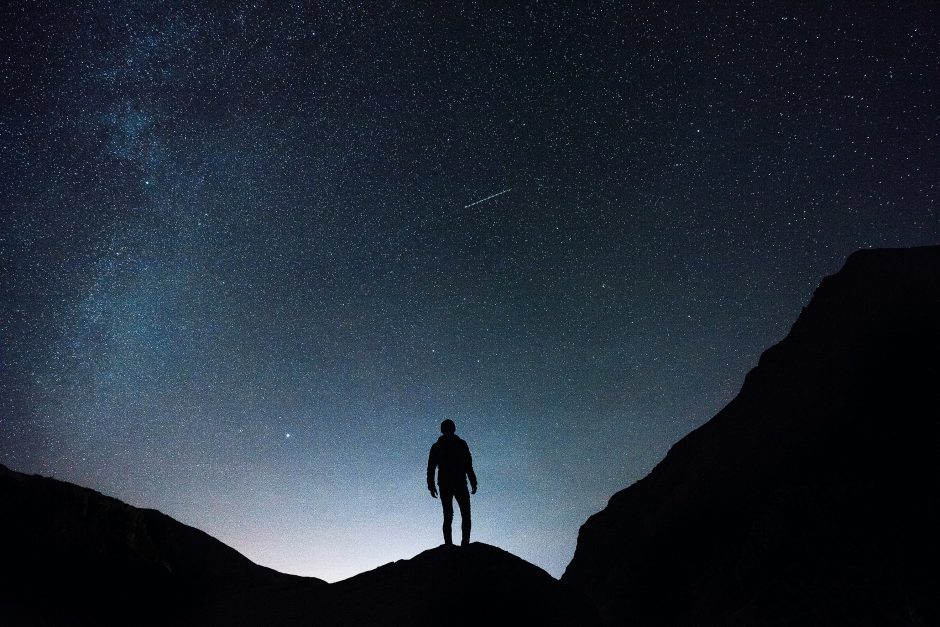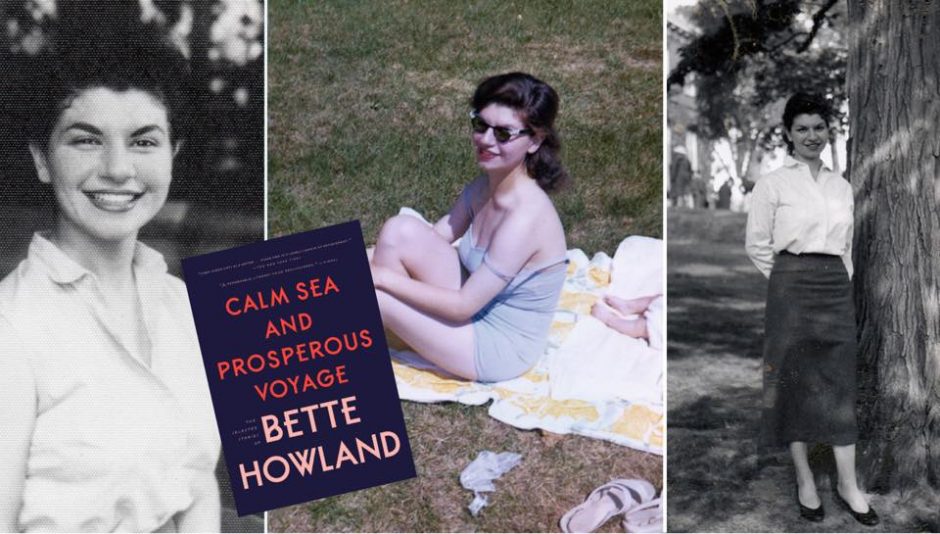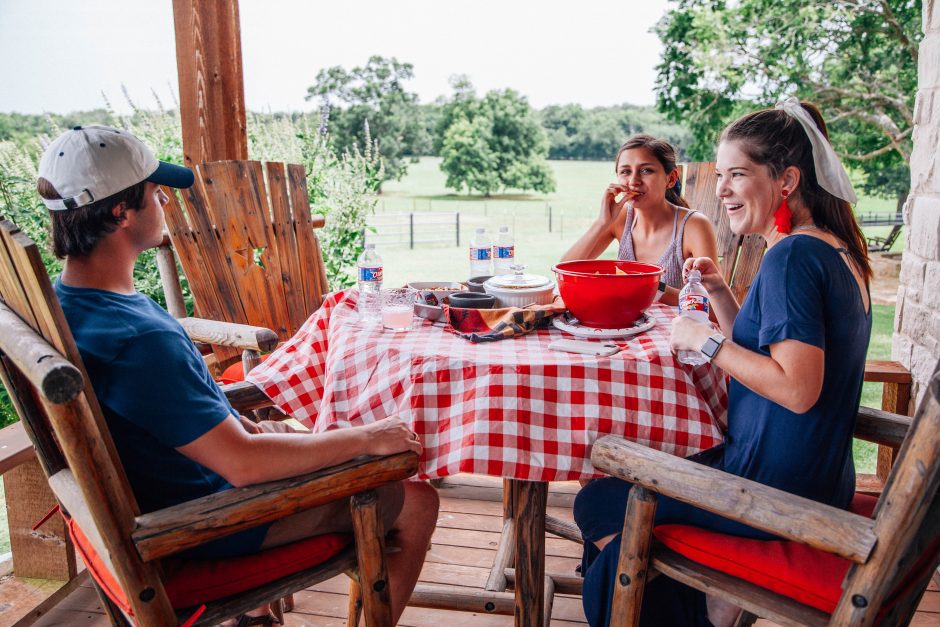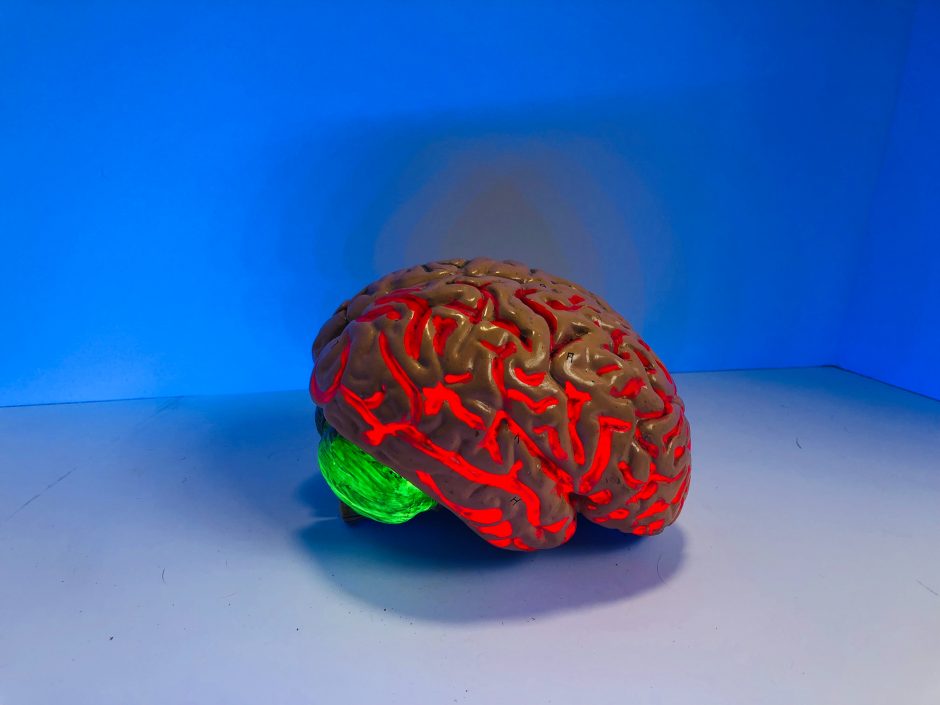At some point in the evening he turned around and realised he was somewhere he’d never been before; that he couldn’t remember any of the people with whom he’d been in that wherever it was he thought he had been before ending up where he was. What it boiled down to was that he was alone, when at some point in the near past it had been otherwise . . . and now he was lost . . . which had not always been the case in that same shifty construct of reality he had assumed was his normal everyday life. Mostly he stayed on top of things. What frightened him was that it was, nevertheless, familiar; that the sudden crushing weight of what-the-fuck was not new; that he had been there in the Nowhere a thousand times since the day/night/whatever when Timothy Thomas Garmin had woken up screaming because in…
“Lux et Veritas,” Four Sonnets by Claude Clayton Smith
Lux et Veritas —for Yvonne The light from all the stars we see goes on to other galaxies although those stars are dead. Where on earth does it end? In non- existent time? Does light lose speed like cars in neutral? Is “fading light” anomalous? Not quite. In empty space light waves maintain their speed until they interact with us or meet other resistance. Light does not distain a vacuum, but glass or water ebbs its flow, and Bose Einstein Condensate can slow it to one mile per hour. Black holes swallow light forever. All Nature does its bit. So where the hell does that leave you and me? The truth of light confounds eternally. B & B Let Basquiat & Banksy paint away, no cityscape untouched, four-handed art on walls and bridges, cement or brick—array of Day-Glo, long-tailed rats; vandals, one part anonymous, one not. Subversive rap or hip-hop punk, epigrams, graffiti…
“The Mailman,” A Short Story by Rachel Laverdiere
You gave me quite the fright! But I did say any time, and I meant it. Yes, yes, come in, come in! Leave your boots on the mat and let me take your coat. Funny, the only person ringing my bell these days is the mailman! Highlight of my day’s the sound of the utility bills dropping through my mail slot. Doesn’t hurt that he’s got spectacular calves, if you know what I mean! All summer long, he wore his shorts uniform—weee-oooo! Just between you and me, I’ve been having fantasies ever since. Now, when the doorbell goes, I’ve gotta catch my breath before I open the door. To be completely honest, it’s a relief you’ve popped by—I was just numbing the old brain with some Netflix, trying to keep my nose clean. I know I’ve mentioned my pledge to sobriety at our Saturday morning staff meetings, but I had a feeling I should put a bottle of white in the fridge. Every once in a while, a girl’s gotta let her hair down, right? Let’s just keep this whole Desiree’s-got-wine-chilling-in-the-fridge thing between the two of us. One teensy glass won’t send me tumbling too far from the wagon! After all, Barney’s…
“Bette Howland” & “Barbara,” CNF by Raymond Abbott
Photo Credit: Magic City Books Editor’s Note: We’re excited to announce two pieces of creative nonfiction by FC member and former Featured Writer, Raymond Abbott. He details two events from his career as a writer. Bette Howland, Chicago Writer Bette Howland has been dead for more than two years. I have had ample time to consider some of the things written about her. She received the MacArthur Award in 1984, and receiving the grant seemed to compel her to stop writing. I had heard of this kind of thing before, but I don’t know that I believe it. What slowed her down when I knew her was the pain she suffered when a man she had been seeing for a long time unexpectedly married another woman. Bette wrote and published several books, including W3, Blue in Chicago, Things to Come…
“My Sister,” Poems by Susan J. Wurtzburg
My Sister My sister enacts meal provider, family clustered around the table. Sustenance for body and heart, hollowed out by this year. Muffled emptiness behind my ribs muted by video calls. Strands across the Pacific from my island to her wooded home. My sibling draws me back to Canada, closed pine borders. Each call a step closer, but still stranded on a rock in the ocean. ** The Toad Heavy rains, another toad in the garden, poison to my dog. Buffo catching, my new pastime, followed by a marsh trip. Bye Mr. Toad. No whimsical talking character, Wind in the Willows cute. Instead a mammoth, warty body, with venom sacs behind his ears. Toad number seven in a lineage, a hopping invading force. Beady eyes, fire-plug body, strong jumping legs, garden bane in Hawaii. Islands replete with outsiders: frogs, rats, goats, even tourists. If the toads arrived with…
“Demon Road,” A Short Story by Derrick R. Lafayette
I lived in a castle made of mud. Solid enough to make you feel caged. Light barely escaped the brown warped walls. The house had so many ancestors pass away inside, that layers of its spirit fought each other seasonally. I was doomed. I believe it was late autumn when my stomach’s emptiness corresponded with my heart. After fifty-five days in solitude, the hunger monster devoured me. Food was to be acquired. There used to be another person to handle these things during the summer. However, the sunlight tempted her to search for buried treasure in the cityscape. She thought there were buildings, roads, and regular life beyond the mountains, past the desert plain. All things inside the dome. I located the area map before she did and destroyed it. I thought about her wandering hopelessly every night. Helped me sleep. The gun seemed to gain ten pounds since the last time I…
“Head Space,” Poems by Ted Millar
Head Space I still know my childhood best friend’s telephone number even though I’ll never dial it again. I’ve taught certain poems so many times I can recite them on demand, yet some claim that has no practical application. Most find my ability to name the American presidents by years in office amusing before urging me to remember “something important” (like last night’s winning Powerball numbers?). I embrace my savant-esque ability to rattle off every Bob Dylan album and the songs featured on them. I prefer not to cram my head with empty crap on the radio and celebrity gossip, thank you very much. Want something proofread, I’m the resident grammarian, but if it’s scores to last night’s game, I suggest turning on ESPN. I’ve actually read the whole Constitution, not cherry-picked excerpts. Ditto the Declaration of Independence, the United Nations’ Declaration of…
This Friday: Live Webinar for Writers on FC!!
This Friday, April 30th, at 2pm Eastern we will be hosting a webinar for writers who want to learn how to create an author platform and market their books. Dan Blank will be presenting on various topics. Check out the description below! Stay tuned for the link for the webinar later this week. An Introduction to Author Platform and Finding Your Ideal Readers Dan Blank has helped thousands of writers develop their author platforms, launch their books, and create marketing strategies that work. In this 1-hour webinar, he will share his methodology for how to develop your author platform, market your writing, and find a sense of joy and fulfillment in the process. He will discuss social media, finding your ideal readers, how to present yourself online, and the key elements of book launches. A Q&A…
“Rat Road,” A Short Story by Paul Negri
Because I had no father, no brothers or sisters, no aunts or uncles, and no friends, and was scared of everything, Mom was worried about me. “I’m worried about you, Tommy,” she would say, and she looked it. And that worried me. She was all I had, my lifeline, and even at nine I knew a frayed rope was not the best lifeline, though I did not think of it in such fancy metaphoric terms, as being a child I had no need for metaphors. What I knew was instinctive, a heightened sense of risk that permeated my day to day and night to night life. Like me, Mom’s father left before she was born and her mother (who I later came to call the Unknown Grandma) gave Mom up for adoption, which launched her into a carousel of foster care for several years. But unlike me, Mom was not afraid of anything, as far as I could tell, and I imagined she never had been. …
“Botticelli’s Oranges,” The Poetry of Reed Venrick
Botticelli’s Oranges In an Italian port village near where the boy called “Allessandro” grew up, some thought his circles drawn must be made with a mechanical compass, so round, so fine, there in the Mediterranean sand, where Botticelli grew into youth, wandering through the orange and lemon groves of the Italian littoral; even then sketching lines of muscular trunks and extending arms branching into fingers of leaves, mixing into colors of rinds of reds and yellows. But when youthful fingers grew long enough to put a brush to canvas, he tinted the precious fruit In Madonna with Child and Angels, where she sat under blooming orange trees in spring, for the artist used orange trees to symbolize the virgin, because as he said: among fruits, only oranges are evergreen, “if one sees the mean.” So…










